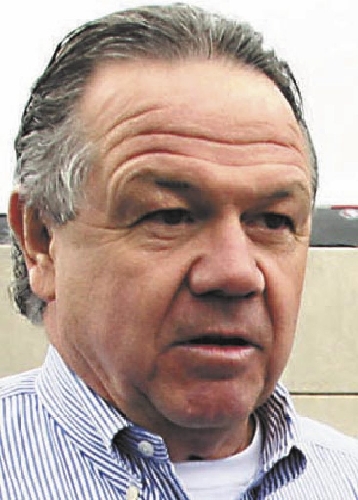What Lobbyists Think

More than 900 people registered to lobby the Nevada Legislature in the most recent regular session two years ago. That compares with fewer than 600 lobbyists two decades ago.
About 100 regularly show up at hearings and in the halls when lawmakers meet every two years in Carson City, including a handful of power brokers. The next session is set to begin in February 2011.
Here’s what a few of the key players are thinking ahead of the 120-day session to come:
DANNY THOMPSON, executive secretary-treasurer Nevada AFL-CIO
A former state assemblyman from Henderson, Thompson has been a chief lobbyist for the union organization for two decades. Thompson said he isn’t optimistic lawmakers will be able to resolve the state’s budget crisis during the scheduled 120-day session. He predicts that if legislators and Gov.-elect Brian Sandoval — who has pledged not to raise taxes — don’t come up with new revenue to pay for government services, voters will back initiative petitions to force their hands as they have done in the past.
"Our (economic) system is broken and we have to fix it," Thompson said. "You’ve got 120 days to do it, and the likelihood of that happening is dim. If they don’t fix it, the people are going to fix it."
He said Nevada leaders have to do everything they can to get people back to work in a state where about 200,000 people are looking for jobs. One idea, he said, is to change the state bidding process to give local businesses preference over out of state companies.
JIM WADHAMS of the law firm Jones Vargas has represented Newmont Mining Corp., Citigroup, Southern Nevada Homebuilders and Nevada Independent Insurance Agents
From a political standpoint, Wadhams said he expects the big battle to be not over the budget but over redistricting — the once every decade process of redrawing the congressional and state legislative districts.
Democrats and Republicans both seek to outline districts that favor them in future elections.
Next year, Nevada is expected to get a fourth congressional district as well.
Still, mining is always a juicy target for lawmakers looking to raise money to balance the budget.
The Nevada Constitution caps the net proceeds tax on minerals at 5 percent. But there have been attempts in the past to raise revenue by removing tax deductions mining companies are allowed, including costs associated with extracting gold, silver and other metals and materials from the ground.
"Mining is in a position now where it’s doing pretty well," Wadhams acknowledged. "The problem is, it’s not just gaming and mining but the whole business community that needs to make sure the state gets through this (economic crisis) in terms of making sure we’re not left in even worse shape."
LYNN WARNE, president of the Nevada State Education Association
A former fourth-grade teacher in Reno, Warne has been lobbying for the teachers union since 2003, a period of rapid growth for the state followed by the past two years of rapid economic decline.
She doesn’t like Gov.-elect Brian Sandoval’s general idea of returning to 2007 budget levels, saying Nevada is already dead last in per pupil spending, even as the state has one of the friendliest, low-tax environments for business in the United States.
"That tax structure has gotten us nothing," Warne said. "When you don’t fund your schools correctly, when you don’t diversity your economy, the whole state suffers. We’re certainly going to be working with him (Sandoval), and we may find many areas that we’re going to agree on. But it’s hard to tell what’s going to happen in the upcoming session. No one has a crystal ball."
DANIEL KLAICH, chancellor, Nevada System of Higher Education
A native Nevadan, Klaich graduated in 1972 from the University of Nevada, Reno. So he has seen the state through its many ups and downs.
Klaich thinks the state’s decades-long reliance on gaming, mining and construction are over and its future must rely more on attracting new industries.
"There’s widespread realization that the economy that has driven this state probably for the better part of the last four decades has peaked," he said. "And it’s clear to all that many of the jobs that we’ve lost during this great recession are not coming back. People are realizing we absolutely have to diversify our economic base. And they also recognize that education, particularly higher education, is at the core of that diversification. If what we’re going through right now doesn’t wake up Nevada, nothing will."